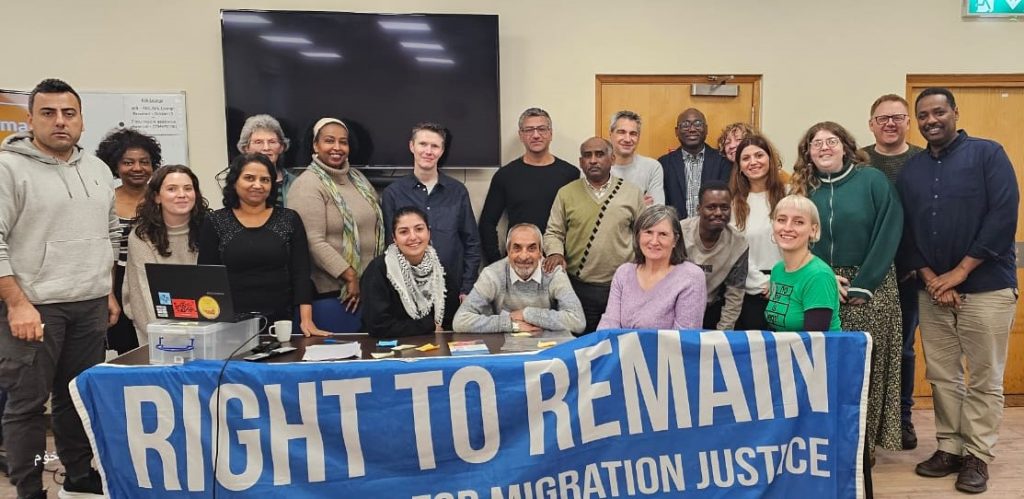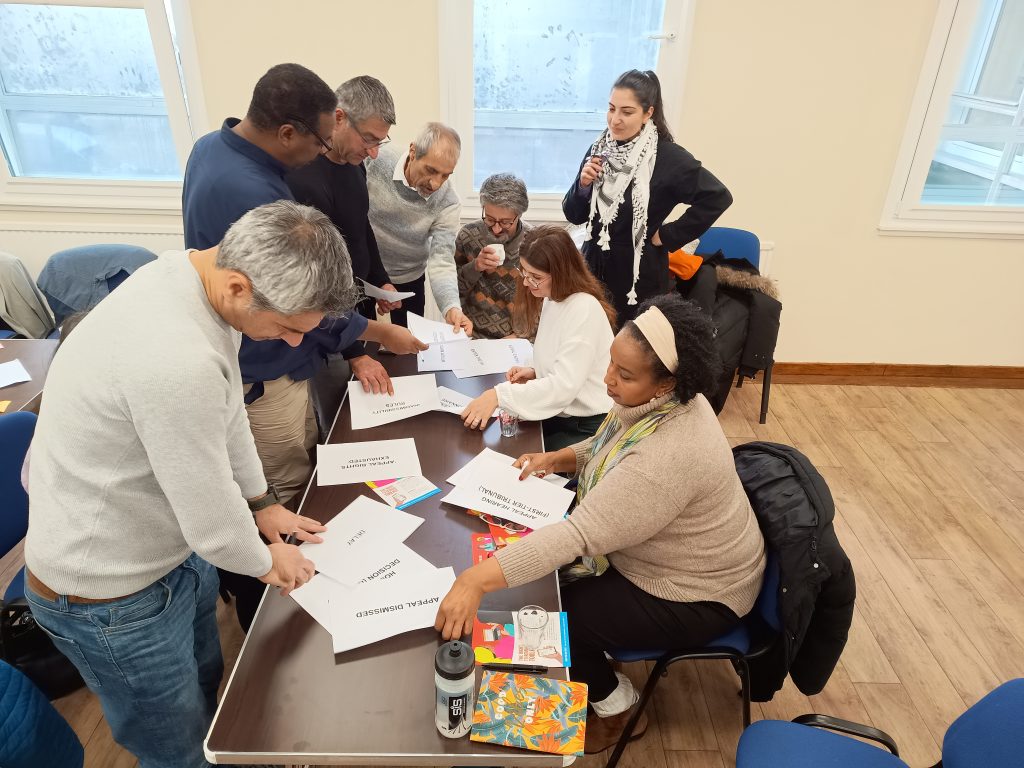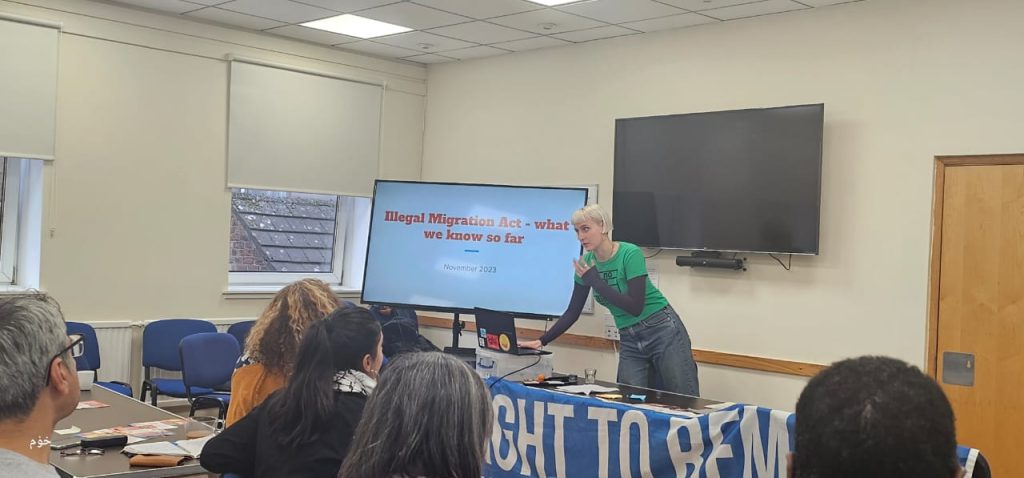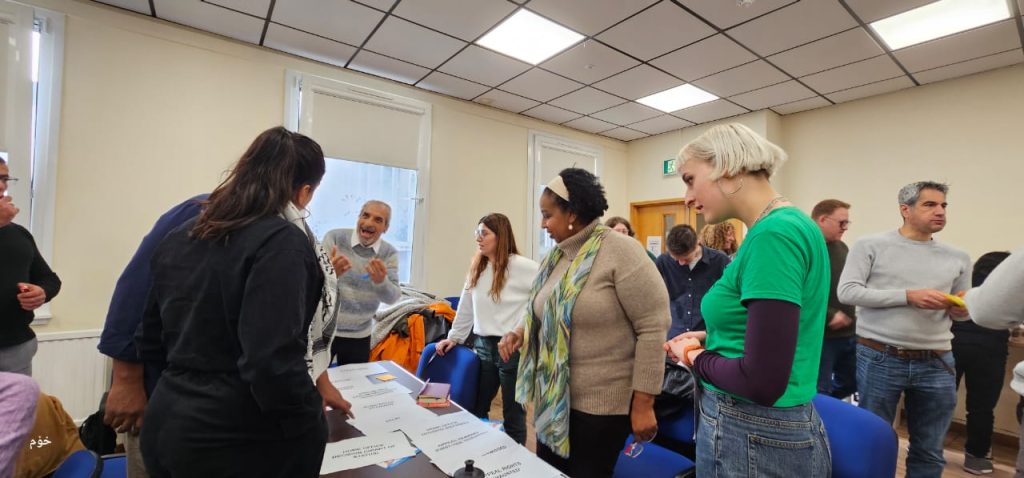
On 21 November 2023, Right to Remain hosted a workshop with staff and volunteers at Community InfoSource in Glasgow. It was a brilliant session, and we are so grateful to have been invited to deliver this workshop!
Established in 2015, Community InfoSource is a registered charity which works with marginalised communities across Glasgow. It has a number of projects designed to support individuals in the asylum and immigration system, including: Challenging Violence against Women, Women & Asylum Seeker Housing, and a Wellbeing Project.
What did we cover in the workshop?
One main purpose of this workshop was to give participants an overview of Right to Remain’s resources, and help them gain confidence in using and sharing the Toolkit. With that as the first objective, Legal Education Officer Leah introduced Right to Remain’s resources, including our regular Legal Updates, our ‘serious board game’: the Asylum Navigation Board, and the Young Asylum Guide – a guide through the asylum system for unaccompanied children.
We then focussed on the Toolkit itself, and shared the key features of every Toolkit page. Every Toolkit page has the following features…
- The date it was last updated
- PDF print function
- Google translate bar
- Action Section in orange: inviting you to take practical action in your case
In order to gain confidence and familiarity with using the Toolkit, the next exercise was an interactive exercise. Using the flyers, participants were able to scan the QR codes on the flyers to take them directly to the Toolkit. Then, using the search bars on every page, participants had to find the answers to certain – sometimes tricky! – questions in the Toolkit.
The aim of this exercise is to position the Toolkit not as an overwhelming resource which must be memorised, but as a resource you can refer to for help on a specific topic. We have also found this to be the most effective way of sharing the Toolkit with others – unsurprisingly, given the size of the resource, it can be overwhelming to receive just a link to the Toolkit. It is much more helpful to share a specific page, YouTube video, or Action Section with someone you are supporting.
Stages of the asylum process
Next we did an activity on the asylum system, which is is designed to help visualise and understand the stages of the asylum journey. In two smaller groups, people had to put the stages of the asylum process in order. This exercise always creates lots of debate and disagreement!

After groups had some time to discuss what they considered was the correct order, Legal Education Officer Leah talked through the stages of the asylum process in more detail. At this stage, questions were raised about what it means to claim asylum – and where this typically happens – as well as how the inadmissibility rules work in practice, and how leaving the European Union affected returns procedures.
The Illegal Migration Act
Then we introduced the Illegal Migration Act. This law has caused fear and confusion for so many since it was brought in on the 20th July 2023. This section of the workshop talked about the bill and what we know so far.

We were able to collectively breathe a small sigh of relief, as we now know the outcome of the Supreme Court judgment in the Rwanda ruling: the government lost their appeal.
Legal advice v legal support
Our final activity of the day was to understand the difference between legal advice and legal support. Legal advice is the application of legal rules and principles to a specific set of facts that proposes a course of action. Provided by people who are registered with the Law Society or OISC (Office of the Immigration Services Commissioner). Legal support is taking action without giving legal advice, and can include passing on legal information and providing emotional moral and practical support through the legal process. Anyone can provide legal support, but only specific people can give legal advice.
Using, understanding and sharing the Right to Remain Toolkit is a form of legal support!
After explaining the difference between legal advice and legal support, we asked groups to consider 10 scenarios, and group them under either legal advice or legal support.
Again, people had differing opinions on some of these scenarios, which is completely normal. Some of the scenarios are designed to help us consider the grey areas of what non-legal professionals can and can’t do.
Thank you to Community InfoSource for inviting us to run this workshop! It is so valuable to be able to run these workshops on these important topics, and when we are lucky to have such an engaged audience it makes it such a pleasure.

Get in touch with us if you’d like to request a workshop for your group!













Discussion: